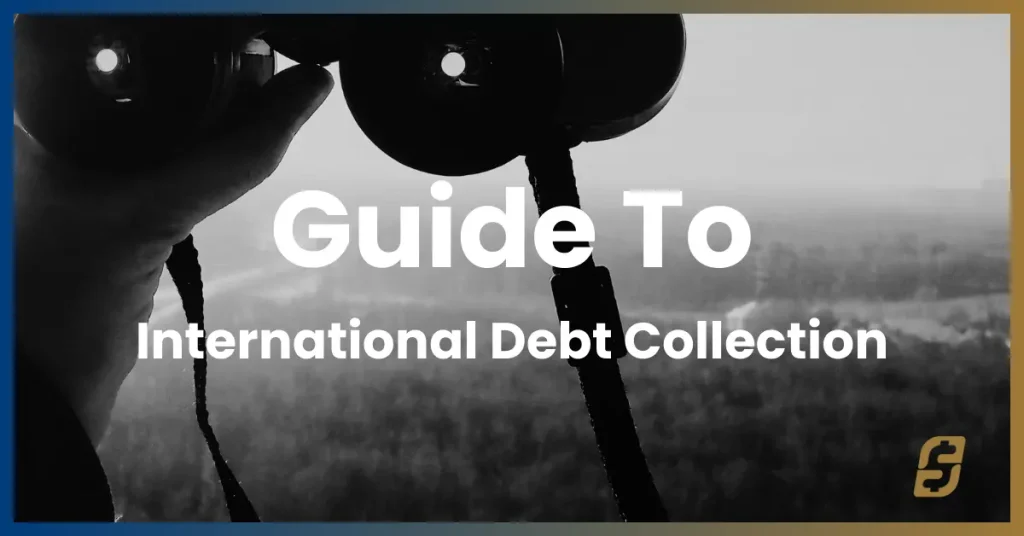Foreign creditors pursuing cross-border debt recovery in Malaysia face several challenges, chief among which is a finding a trustworthy debt collection service provider. To help, our guide provides an overview of how to effectively pursue international debt collection in Malaysia and evaluate recovery specialists.
Table of Contents
ToggleThe main difference between domestic and international debt recovery is a practical one—foreign creditors are frankly entirely reliant on local debt collection services, so the selection process should be correspondingly stringent!
On top of not recovering a debt, creditors who choose wrongly risk reputational damage and even legal exposure depending on methods employed by the debt collector.

‘Allegedly’ employed.
Essentials on Malaysian debt recovery laws
The good news is debt recovery laws in Malaysia are relatively straightforward and apply equally to cross-border cases (foreigner suing a Malaysian entity), and here’s a quick look at what you need to know:
- Malaysia’s Limitation Act 1953 gives creditors six years to recover a debt
- the six year limitation period starts from the date of when payment is due
- if a debtor acknowledges a debt / makes partial payment, the six-years resets
- enforcement of a Court Judgement against a debtor is six years by default
- the courts may extend a judgement by another six years with justification
- if a creditor allows the limitation period to expire, legal recovery is not possible
Our guide to debt recovery laws in Malaysia covers this at length, but the main takeaway is that the sooner creditors take action, the better the chances of debt recovery.
If your debt is within the limitation period, the next decision is whether to engage a debt collection agency or a debt recovery lawyer.
Debt recovery agency vs debt recovery lawyer
Many creditors assume debt recovery agencies and lawyers in Malaysia are the same, but there are two key differences.
Letters of Demand vs payment reminders
While agencies without lawyers can only send layman payment reminders, licensed solicitors issue Letters of Demand (LODs) that can be used to escalate legal action, making it more likely to prompt debtors to take action.
Regulation and oversight
As of 2025, Malaysia still has no specific license for debt collection agencies, and they largely operate in a legal gray area without bona fide regulatory oversight. There have been many tales of shady agencies absconding with clients’ monies or imposing unexpected hidden fees.
Debt recovery lawyers, on the other hand, are governed by the Malaysian Bar Council and risk losing their license if they breach strict standards.
Practical differences
In practice, lawyers usually stick to compliant recovery processes, while agencies are more likely to use ‘by any means’ tactics, and a creditor’s choice depends on how much they value legal compliance.
That said, both types of providers can be assessed with the same evaluation criteria.
Debt recovery specialist evaluation criteria
Competence and trustworthiness are two qualities that define any effective service provider.
The challenge is figuring this out before engaging one and discovering too late they lack both!
In debt recovery, three factors reveal the most (in order of importance):
- fee structure
- track record, and
- responsiveness
How a provider measures up in these areas will raise or lower chances of success.
| Factor | What to Look For | Red Flag |
| Fee structure | Works on a success or ‘no recovery, no fee’ basis | Demands high upfront fees before any work is done |
| Track record | Has documented success rates, case studies, or references | No demonstrable history of success, cannot provide references |
| Responsiveness | Replies promptly and explains processes clearly | Poor communication, vague or evasive explanations |
We recommend foreign creditors be uncompromising on these points, so if a provider fails in any one area, it’s best to move on.
In reality, creditors will likely end up with a list of providers who meet all three factors, at which point they can choose the one with the best combination of:
- a competitive success-based fee
- similar (and successful) past cases, and
- clear and professional communication
However, remember that the best service providers don’t take on every case, especially not under a no-win, no-fee arrangement.
Establish debt recoverability for your case
Debt collection agencies and lawyers naturally prefer straightforward cases where the debtor:
- is not bankrupt or insolvent
- has the means to pay, and
- has no legally credible defence for not paying
If a creditor can demonstrate them to a reasonable degree, the chances of getting taken on under a success-based fee goes up significantly.
What a typical debt recovery process looks like
Cases where debt recoverability is established are usually resolved without going to court, though legal action is sometimes needed if debtors delay or contest the debt.
Step 1: Case assessment
The provider reviews whether the debt is valid, enforceable, still within the limitation period, and whether the debtor has the means to pay.
Step 2: Payment reminder or Letter of Demand (LOD)
Agencies can only send reminders, while lawyers can issue an LOD with legal weight.
Step 3: Negotiation
If the debtor responds, negotiations usually lead to full or partial settlement, or an installment plan. The provider follows up to ensure payments are honored.
Step 4: Litigation
If negotiations fail and the debt is substantial (e.g. RM100,000+) and the debtor has clear means to pay, a lawsuit may be worth considering in order to obtain a court judgment. Smaller claims can still be filed in the Magistrate’s or Sessions Court.
Step 5: Enforcement
If the debtor still refuses to pay, judgment can be enforced through garnishee proceedings, asset seizure and sale, or winding up / bankruptcy actions.
Be warned: Pursuing a debt through Malaysian courts can take years, cost hundreds of thousands, and is usually reserved for creditors with strong, substantial claims and a reliable lawyer by their side.
That’s all from us, and we wish readers a smooth debt recovery process.
Let Rule & Co handle your debt recovery

Rule & Co is a debt recovery law firm that routinely helps overseas creditors recover debts in Malaysia. A licensed member of the Malaysian Bar, we employ proven legal strategies that maximise recovery while protecting your reputation.
💡 FAQs on cross-border debt recovery in Malaysia
Q: Is it difficult to pursue a debt in Malaysia for overseas creditors?
A: Not if the debt is valid and within the limitation period. Malaysia’s recovery laws are clear and allow creditors to enforce their rights. The main challenge is distance, which can be solved by working with a reliable local debt collection service.
Q: What are the basics of Malaysian debt recovery laws?
A: Creditors have six years to recover debts, the clock resets if the debtor pays or acknowledges, and expired debts can’t be enforced.
Q: Are there specific laws that affect cross-border debt recovery?
A: No, Malaysia applies the same debt recovery laws to both local and foreign creditors, but you need a local representative to act on your behalf.
Q: What’s the difference between a debt recovery agency and a lawyer?
A: Debt collection agencies are largely unregulated while all debt recovery lawyers are licensed by the Malaysian Bar Council, which means the latter is more likely to strictly adhere to legal recovery methods.
Q: How do debt collection agencies and lawyers collect the debt?
A: They assess recoverability, issue a letter of demand, negotiate, mediate and escalate to court if needed. They also enforce settlement terms and follow up on installment payments to ensure full settlement.
Q: What level of debt is worth taking to court in Malaysia?
A: Generally, for court litigation — debts of RM100,000 and above make sense to pursue through legal action. Debts below that threshold are trickier when it comes to balancing cost vs. return.
Q: How do I evaluate a debt recovery provider?
A: Check their fee model, proven track record, and how clearly and quickly they communicate.
Q: How do I find the best debt recovery provider in Malaysia?
A: Look for one with fair fees, a history of successful cases, and professional communication.
Q: How do I ensure my case is taken on by a reputable provider?
A: Show that the debtor can pay, isn’t bankrupt, and has no strong legal defence.

